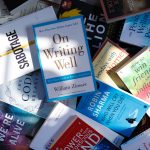Laura Vanderkam is the bestselling author of multiple books on productivity and time management, including I Know How She Does It, 168 Hours, and What the Most Successful People Do Before Breakfast. She recently joined Chris Bailey, the author of The Productivity Project, for a Heleo Conversation on making the most of the new year. They discuss the best goal-setting strategies and why we all have more time than we think.
This conversation has been edited and condensed. To view the full conversation, click the video below.
Chris: Do you have any resolutions that you set this New Year?
Laura: I set quarterly goals, not resolutions. The problem with many New Year’s resolutions is there’s lots of things we want to do, but if you focus on all of them at once you won’t get to all of them. “Should I be focusing on coming up with a new book idea or de-cluttering my house or reading one book a week?”
It helps to say, “I have a time for that and now is not that time. I’ll be doing that in Q2, not Q1. I don’t even need to think about it but I know it will happen.” The other thing I do is I set them in three categories: one career goal, one relationships goal and one self goal. That means that you have a more balanced life.
Chris: Do you set the four quarterly goals right at the start of the year?
Laura: Here’s the thing: I am incredibly flexible about the goals. You have to be, because setting something for Q4—who knows? Plans go awry for good reasons and bad reasons, so it’s really highly speculative. If I decide it’s something I don’t want to do, I’m the one who set the goal, so it’s not like I owe it to anybody.
Chris: This is why five-year plans bug me: people think they can plan for five years down the line, but we can’t even figure out what we’re doing tomorrow so much of the time. The things that we should be worrying about that’ll get in the way of our plans, it doesn’t occur to us to worry about in the first place. Sheryl Sandberg advocates for an 18-month plan, which I love because it’s like the four quarterly goals, but it accommodates for all the risks that, chances are, we’re going to encounter.
If we can plan out our life five years down the line, either we’re not accounting for the risk or we’re not doing work that’s interesting enough that would make setting goals worthwhile. We’re playing it too safe.
Laura: I would say, it’s not a problem to set five-year intentions in the sense that many people like to have big pictures of their lives, it’s just you have to recognize that so much of life is unknowable and that life has possibilities and challenges you cannot even imagine. There’s no reason not to say, “Here’s things I would like to do over the course of my life or in the next five years,” but just with a little less rigidity.
Trending: 5 Reasons Life Gets Better After Your 40s
Chris: Recently, I was watching your amazing TED talk, [where you discuss] that we really have more time than you think. Would you be able to share that story?
Laura: I had hundreds of people keep track of their time for a week. This particular woman had gone out Wednesday night and came home to find her water heater broken. Any homeowner knows the possibility of this disaster. They warn you to replace your water heater every 12 years, [because] when it malfunctions, it malfunctions badly. Water flooded her basement. Dealing with the immediate aftermath that night, the next day plumbers, the day after that professional cleaning crew for the ruined carpet… it’s being recorded on her time log and winds up taking seven hours of her week.
I get contacted by magazines all the time to do stories on how to help readers find an extra hour in the day, which is like finding seven hours in the week. This woman wasn’t following some plan to find seven hours in her week by shaving bits of time here and there. She found seven hours because there’s water all over her basement and she has to deal with the fallout. If you had asked her at the start of the week, “Could you find seven hours to train for a triathlon?” she would have said, “No way.”
Yet, when she had to find an extra hour in the day, she did. What this teaches us is that time is extremely elastic. When we say we don’t have time for something it just means that it’s not immediately a priority, and maybe there’s a good reason for that. Maybe you have water all over your basement, so the other things are not a priority because you’ve got to get to the water.
“How can we pretend that the things that matter to us are like this giant puddle of water on the basement floor? We’ve got to get to them now. Everything else will wait.”
It might behoove us to figure out if we can treat the things that do matter to us as the equivalent of this broken water heater. How can we pretend that the things that matter to us are like this giant puddle of water on the basement floor? We’ve got to get to them now. Everything else will wait.
Chris: I’ve fallen into that trap before, thinking I’m so busy. I thought, I haven’t really done anything to invest in a hobby recently—I haven’t really had much fun over the last several months. And so that was the moment I decided to buy a piano.
Laura: I play some piano, not nearly as much as I probably should. Humorously, one of my quarterly goals for 2016 was to learn to play “Linus and Lucy,” the song from Peanuts Christmas, on the piano. I went so far as to order the sheet music from Amazon. It got lost in transit. Life got busy, I didn’t follow up, I didn’t even go get a refund or anything. Somewhere in the universe my copy of “Linus and Lucy” is out there. 2016 is over now, that goal did not happen. Big fail. Productivity writers have our goal-setting fails like anyone else.
Chris: Exactly. What percent of the intentions you set at the start of the year do you think you keep?
Laura: I do keep most of them, definitely over 50%. Mostly because I know myself pretty well and so I’m not going to set a goal that I would never keep, like stop drinking coffee. I’ve even realized certain kinds of exercise I won’t do. I’ll run, but I don’t really like strength training. I’m not going to do it. I recognize that.
“You have intentions and you know things matter to you but then other stuff can come up that can transcend anything you’ve set, and that can be good too.”
The thing is, you also get things that happen that you didn’t foresee. I set a goal to hit a certain dollar figure for speaking in 2016 and I hit it. That wound up being far less interesting to me than my unpaid TED talk, a goal I didn’t even think to set. That came out of other something random, which is that I had been tracking my time for a year and I posted on my blog. Randomly somebody had forwarded it to an editor at the New York Times, who wrote me and said, “Hey, would you possibly be interested in writing about it for us?” The TED thing came out of that. Neither of those would I ever have thought to set as a goal, but they wound up being professional highlights for the year.
You have intentions and you know things matter to you but then other stuff can come up that can transcend anything you’ve set, and that can be good too.
Chris: It’s funny, one of the things that I tried to do in my productivity project was wake up at 5:30 every morning for three months. I struggled to shoehorn this habit into my life. (I woke up at 10 today, by the way, to give you a sense of my biological rhythms.)
I woke up at 5:30 to make coffee, meditate, and read the New York Times, but then I realized that I absolutely hated the ritual. I loved the idea of the end goal, but the process to get there really wasn’t worth it. You’ve got to love the process of the goals that you set, because if you hate the process, do you really like the goal?
Trending: 5 Simple Strategies for Persuading Anybody
Laura: I wrote a whole book called What The Most Successful People Do Before Breakfast that looked at morning routines. I would write about people getting up at 5 a.m. to run a marathon or something. People often think that I do that. One article about the book said, “She rises at 5 a.m. to greet the rosy-fingered dawn.” One of my friends forwarded this to me saying, “I know what finger you’re greeting the rosy dawn with.” I am never up at 5 a.m. on purpose.
I totally agree with you that we will not stick with something we hate. So much of what we do is about seeking pleasure and avoiding pain. Those of us who come across as disciplined—in some regards we may be, but it may also be that the things that give us pleasure turn out to be habits that other people might want to have. I genuinely like running, so it’s not like I have this amazing self-discipline, it’s just that I enjoy doing it. Whereas if somebody told me I needed to practice French daily for an hour I would say, “No, I will not be doing that.”
“The more we do work that we love and the more we do things that are connected to things we deeply value, the less we need to regulate our own behavior to focus on it in the moment.”
Chris: That speaks to the power of doing work that we love. The more we do work that we love and the more we do things that are connected to things we deeply value, the less we need to regulate our own behavior to focus on it in the moment. This is why the most productive people are the ones who love their work. It’s hard to invest in your productivity if you don’t care about the work in the first place.
A study I was reading the other day found that people who love their work need to take fewer breaks because they expend less mental energy regulating their own behavior. That speaks to setting goals that connect with us on a deeper level, as well.
Waking up at 5:30, it’s this sepia-toned fantasy of being this person who wakes up ultra early and meditates and has a rocking six-pack by summer. If we don’t care about these things, it’s hard to care about important goals in the immediate term, because in the immediate term we don’t want to become vice-president or have a six-pack, we want to play hooky and grab a cheeseburger. If we don’t care about them in the medium and the long-term as well, what’s the point? If we just like the idea of these changes more than we like the process and the deeper meaning behind the end result?
Laura: I totally agree. If you were going to tell somebody your biggest productivity tip, what would that be?
Chris: Intentionality lies at the heart of productivity, but we so often focus on how productive we are and what we do as opposed to the results that productivity leads to.
You’ve probably heard of the Zeigarnik effect before, where we remember the incomplete things that we haven’t done more than the things that we have done. Every year I keep a list of the big things that I accomplish in my personal life and my work life. I was looking over that and kind of patting myself on the back—I know it sounds self-congratulatory, but it’s important that we do congratulate ourselves. Look at the results that our productivity leads to. You remember the things you do accomplish more when you’re done.
“Keep track of how you’re spending your time, because if you want to spend your time better, figuring out how you’re spending it now is a good place to start.”
What about you? What tip would you give?
Laura: Keep track of how you’re spending your time, because if you want to spend your time better, figuring out how you’re spending it now is a good place to start.
You might say, “I want to exercise more.” If you don’t know how many times you’re exercising or how long, how do you know if you’re doing it more? If you want to get better sleep, again, know how much you’re sleeping as opposed to stories you might be telling yourself about how much you sleep. “I want to work less.” How much are you working now? If you don’t know for sure you won’t know if you hit it.
Trending: 40 Nonfiction Books to Look Out for in 2024
Even just keep track of your time for a week. A day or two can give you a pretty good picture of your life, but weekends are part of life, too. There are 60 hours between 6 p.m. Friday and 6 a.m. Monday. You want to know where that time goes if you are looking at your life holistically. Of course, the problem is most people don’t actually want to do that, I’ve found.
Chris: It’s a tedious process, isn’t it?
Laura: There are time-tracking apps that make it slightly easier. I have been tracking my time for about 21 months now…
Chris: Nonstop?
Laura: Nonstop. It’s not that tedious, I just write it down on a spreadsheet in half-hour blocks. I check in maybe three times a day and write what I’ve done since the last check-in. I can go as long as 24 hours now and remember, so I don’t have to check in constantly. I am still learning stuff about how I spend my time and I’m still making changes based on that.
I know now that I don’t work nearly as many hours as I thought I did. That’s interesting to me, because we make fun of other people for over-estimating how much they work, and yet I do it, too. I thought I worked a certain amount because I had tracked my time for weeks in the past, but it turns out I had chosen very specific weeks, which were weeks that looked as I wished to show the world what I worked like.
Chris: What would you say to somebody who says, “I don’t have a typical week this week. I’ll just do it next week.”
Laura: There are no typical weeks. Our picture of what a typical week is sets us awry in giving us a false picture of our lives.
Whenever I’m doing corporate workshops and have people keep track of their time for a week, inevitably somebody will tell me, “I was going to start Monday but my car broke down Monday and so I only worked a half day so I’m going to start over on Tuesday or next week.” You can, that’s fine, but unless you think something like that will never happen again in your life, I would propose that having a week where you are not perfectly at work all the time may be more typical than a week where you are.
Let’s say I work 8 to 6. “There was traffic and I got in a little bit late on Thursday,” or “I left early on Friday,” or “I had a dentist appointment on Monday.” The next thing you know it’s not 8 to 6 and there’s quite a bit of time that was out of that. In your mind, you work 50 hours a week, but when you actually record it, it was more like 42. That is a serious difference. It’s not that you were wasting the eight hours that you thought you were working, there’s just stuff that comes up. That’s where one of those gaps between perception and reality comes from.



























